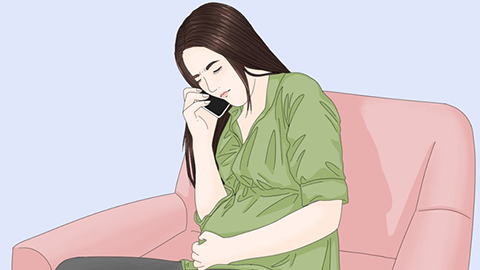What causes white fluid discharge from the breasts after miscarriage?
Under normal circumstances, the discharge of white fluid from the breasts after miscarriage may be caused by factors such as unrestored hormone levels, breast compression or stimulation, hyperprolactinemia, mammary gland hyperplasia, or mastitis. If discomfort occurs, it is recommended to seek timely medical evaluation and treatment at a正规 hospital. Detailed analysis is as follows:

1. Unrestored Hormone Levels
After miscarriage, estrogen and progesterone levels decrease gradually, while prolactin levels relatively increase, stimulating the mammary glands to secrete small amounts of white fluid. Avoid squeezing the breasts, maintain a light diet, and follow regular sleep patterns; hormone levels will gradually return to normal.
2. Breast Compression or Stimulation
The breasts may remain sensitive after miscarriage, and external pressure can cause small amounts of secretions to be expelled from the mammary ducts. Wearing loose-fitting cotton underwear can reduce friction and pressure on the breasts, and no special treatment is required.
3. Hyperprolactinemia
Elevated prolactin levels due to abnormal pituitary function can lead to continuous secretion of white fluid from the mammary glands. Under medical guidance, medications such as bromocriptine tablets, dihydroergocryptine mesylate tablets, or vitamin B6 tablets may be prescribed. Regular monitoring of prolactin levels is recommended.
4. Mammary Gland Hyperplasia
Hyperplasia of breast tissue influenced by hormonal fluctuations may result in increased secretions appearing as white fluid. Under medical supervision, medications such as Rupixiao tablets, Xiaoyao pills, or Xiaojin pills may be used. Maintaining emotional stability and avoiding late nights are also important.
5. Mastitis
Bacterial infection causing breast inflammation may initially present with white discharge, accompanied by breast swelling, pain, and fever. Under medical guidance, antibiotics such as cefradine capsules, amoxicillin capsules, or metronidazole tablets may be prescribed. If an abscess forms, incision and drainage of the breast abscess may be required.
In daily life, attention should be paid to breast hygiene and avoiding compression. Maintain a positive mood and avoid anxiety. Follow a balanced diet and minimize consumption of spicy or irritating foods. Regular breast examinations are recommended to detect and address abnormalities early.






